Jacinta Barrins is on a mission to bring a huge cohort of the Irish public up to speed on what climate change really is and how they can play their part in curbing carbon emissions on a day-to-day basis.
The former United Nations resident coordinator has worked all over the world, in a career spanning over four decades.
Now retired, the Sligo native, who calls Galway home, is reaching out to her own generation to share the vast knowledge she has accumulated in climate change and sustainability.
Jacinta founded the 60+ Climate Drive last year and has spent the past nine months travelling across the country, speaking to retirement groups, Men’s Sheds and other community and voluntary groups, to share her wisdom on how individual behaviour impacts climate change.
Climate Courses for over-60s are now running in Galway and Offaly, with others planned in Mayo, Laois, Carlow, Monaghan and Donegal in the coming months.
Retirement plan
“I have worked all over the world since I left Galway with my master’s in hydrology engineering in 1979, from Africa to Asia and the Middle East,” Jacinta says. “When I retired three years ago, I knew I had to have a plan, as sitting back with my feet up was never an option.
“I decided to return to Galway to do a master’s in climate change, which was an intensive one-year programme, including a thesis. This gave me time to consider my next steps and a lovely part of that course was that it included agriculture and food security.”
Last year, at a climate conference in Ballina, Jacinta heard claims by the Environmental Protection Agency that 90% of the public were concerned about climate change but she questioned the statistic.
“This didn’t add up for me, given all the resistance there is to climate change measures, so I decided to target my own age group to see what concern really was out there,” she says.
Household consumption is linked to 66% of global carbon emissions, but no one is talking about that, or educating people on ways to reduce this
“We are the ones who have contributed most to climate change, those of us born in the 1950s and 1960s, yet no one is asking us our thoughts on the issue.
“Household consumption is linked to 66% of global carbon emissions, but no one is talking about that, or educating people on ways to reduce this. When you think of media coverage on climate change, household consumption is barely mentioned, it’s all transport and industry and agriculture emissions that make the headlines.
“I had to find a way to explain the science behind climate change in a way that was easy to understand. What causes it and what prevents it and also to convey the fact that knowledge isn’t enough.
“People knowing about it is one thing, but there has to be a change in behaviour if this is going to work, so I needed behavioural change models to illustrate the barriers people face.
Collective conversations
“I want people to sign up to one action they will undertake to reduce their own carbon footprint, which is something I explain in detail too, as most people don’t understand what this is or what theirs is made up of. The last crucial aspect is convincing people of the power of collective conversations about climate change.”
Jacinta reached out to the Climate Action Team in Galway County Council and is now working with its Community Climate Action Officer on the project, Denise Feeney.
Denise says the uptake of the current course in Oranmore is proving that older people want to understand climate change, so that they can play their part in reducing carbon emissions. “The course is a two-hour commitment every week for six weeks and we have 17 people registered on the one running in Oranmore at the moment,” she explains.
“Jacinta delivers the information in a clear and simple manner; where she is sat around a table with the participants, having a warm and engaging conversation instead of standing in front of them, lecturing her points.
“A couple of the women are married to farmers who we are hoping will come on board to learn more about climate change, but Jacinta is very keen not to apportion blame to any one sector.
“The participants are all intrigued by the information they’re being given and very interested in learning ways they can play their part to reduce their carbon footprint.”
Intergenerational
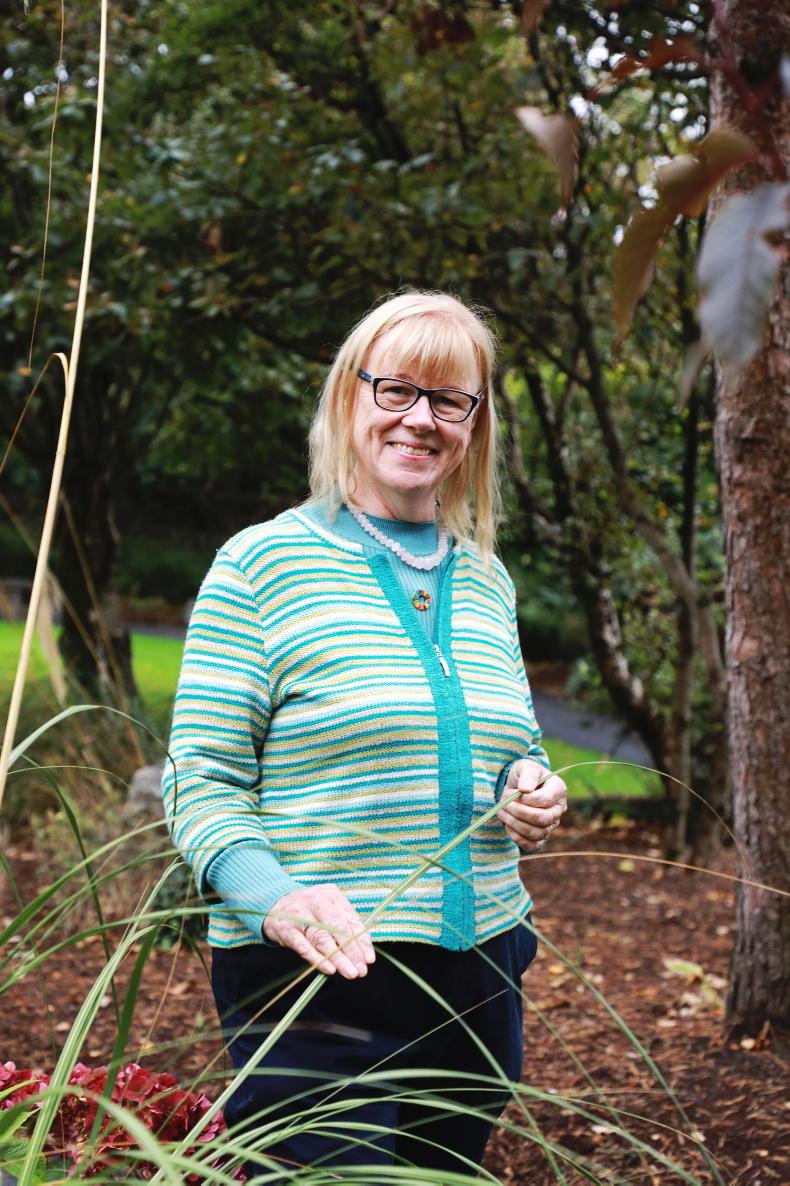
Jacinta delivers the information in a clear and simple manner; where she is sat around a table with the participants, having a warm and engaging conversation.
“The group we have on the course are very open-minded and are enjoying the fact that the science behind greenhouse gases is being explained in a simple manner they can understand. It’s a factual, informal setting and the hope is that our participants will share the information they are getting with their friends and family to get the message as far and wide as possible.”
Since April, well over 200 people have attended Jacinta’s talks and courses, which have recommenced last month.
“I want this to appeal to both men and women and for it not to be confined to those of retirement age,” she adds.
“Children are learning it in school and I’m hoping to involve Transition Year students in one of my courses in Ballygar in east Galway in the coming months, as I’m very keen to make this inter-generational. I know I will need to train mentors to help me deliver this if I’m to reach as wide an audience as possible.
“People may acknowledge their role in climate change, particularly my generation who were born in the 1950s and 1960s, but they don’t understand it and they certainly don’t have the knowledge or information as to how to reduce their carbon footprint.
“Yet the first group to attend my talk earlier this year, once they understood the issues, committed to one action to address their impact on climate with seven out of 10 people committed to a high-impact action, such as improving the insulation in their homes or turning down the thermostat on the boiler.”
Course participant
Michael Bracken is one of 14 participants attending the course in Tullamore, which started at the end of September. He believes the knowledge he will gain can help him continue in his role as an educator after he retires.
“I’m passionate about climate change and sustainability and have always wanted to do something to promote both at a community level,” he says.
“I am approaching retirement, but am working with young people in
education and training and I already try to instill in my students a sense of civic duty when it comes to the environment. I am excited about the psychology of the course where it is looking at the conditioning of people when it comes to their perception of climate change.
“I hope to put my own programme together at the end of this course that would dovetail with it. I firmly believe there’s a huge disconnect with younger people, who when they’re in primary school their environmental awareness is at its peak through the Green Flag initiative. But then it gets lost and it’s so important re-engage with young people if we’re to make the changes we need to make.”
A spokesman for Offaly County Council says the local authority was “delighted to collaborate with Jacinta” in the delivery of the Climate Course for over-60s.
“The Climate Action Team in Offaly County Council appreciates that this is a very powerful demographic within Irish society and expects high impact from the delivery of this informative programme,” he says.
The Climate Action Plan 2024 identifies a number of actions to lead Ireland to meet its national climate objective of pursuing and achieving, by no later than 2050, the transition to a climate resilient, biodiversity rich, environmentally sustainable and climate neutral economy.The Department of the Environment has provided funding to each local authority to support a Climate Action Team to develop initiatives to reduce greenhouse gases, use renewable energy, improve home insulation, change travel habits, and adopt sustainable lifestyles.The Community Climate Action Programme will invest €60m from the Climate Action Fund in community climate action projects and initiatives over the next three years.
Jacinta Barrins is on a mission to bring a huge cohort of the Irish public up to speed on what climate change really is and how they can play their part in curbing carbon emissions on a day-to-day basis.
The former United Nations resident coordinator has worked all over the world, in a career spanning over four decades.
Now retired, the Sligo native, who calls Galway home, is reaching out to her own generation to share the vast knowledge she has accumulated in climate change and sustainability.
Jacinta founded the 60+ Climate Drive last year and has spent the past nine months travelling across the country, speaking to retirement groups, Men’s Sheds and other community and voluntary groups, to share her wisdom on how individual behaviour impacts climate change.
Climate Courses for over-60s are now running in Galway and Offaly, with others planned in Mayo, Laois, Carlow, Monaghan and Donegal in the coming months.
Retirement plan
“I have worked all over the world since I left Galway with my master’s in hydrology engineering in 1979, from Africa to Asia and the Middle East,” Jacinta says. “When I retired three years ago, I knew I had to have a plan, as sitting back with my feet up was never an option.
“I decided to return to Galway to do a master’s in climate change, which was an intensive one-year programme, including a thesis. This gave me time to consider my next steps and a lovely part of that course was that it included agriculture and food security.”
Last year, at a climate conference in Ballina, Jacinta heard claims by the Environmental Protection Agency that 90% of the public were concerned about climate change but she questioned the statistic.
“This didn’t add up for me, given all the resistance there is to climate change measures, so I decided to target my own age group to see what concern really was out there,” she says.
Household consumption is linked to 66% of global carbon emissions, but no one is talking about that, or educating people on ways to reduce this
“We are the ones who have contributed most to climate change, those of us born in the 1950s and 1960s, yet no one is asking us our thoughts on the issue.
“Household consumption is linked to 66% of global carbon emissions, but no one is talking about that, or educating people on ways to reduce this. When you think of media coverage on climate change, household consumption is barely mentioned, it’s all transport and industry and agriculture emissions that make the headlines.
“I had to find a way to explain the science behind climate change in a way that was easy to understand. What causes it and what prevents it and also to convey the fact that knowledge isn’t enough.
“People knowing about it is one thing, but there has to be a change in behaviour if this is going to work, so I needed behavioural change models to illustrate the barriers people face.
Collective conversations
“I want people to sign up to one action they will undertake to reduce their own carbon footprint, which is something I explain in detail too, as most people don’t understand what this is or what theirs is made up of. The last crucial aspect is convincing people of the power of collective conversations about climate change.”
Jacinta reached out to the Climate Action Team in Galway County Council and is now working with its Community Climate Action Officer on the project, Denise Feeney.
Denise says the uptake of the current course in Oranmore is proving that older people want to understand climate change, so that they can play their part in reducing carbon emissions. “The course is a two-hour commitment every week for six weeks and we have 17 people registered on the one running in Oranmore at the moment,” she explains.
“Jacinta delivers the information in a clear and simple manner; where she is sat around a table with the participants, having a warm and engaging conversation instead of standing in front of them, lecturing her points.
“A couple of the women are married to farmers who we are hoping will come on board to learn more about climate change, but Jacinta is very keen not to apportion blame to any one sector.
“The participants are all intrigued by the information they’re being given and very interested in learning ways they can play their part to reduce their carbon footprint.”
Intergenerational

Jacinta delivers the information in a clear and simple manner; where she is sat around a table with the participants, having a warm and engaging conversation.
“The group we have on the course are very open-minded and are enjoying the fact that the science behind greenhouse gases is being explained in a simple manner they can understand. It’s a factual, informal setting and the hope is that our participants will share the information they are getting with their friends and family to get the message as far and wide as possible.”
Since April, well over 200 people have attended Jacinta’s talks and courses, which have recommenced last month.
“I want this to appeal to both men and women and for it not to be confined to those of retirement age,” she adds.
“Children are learning it in school and I’m hoping to involve Transition Year students in one of my courses in Ballygar in east Galway in the coming months, as I’m very keen to make this inter-generational. I know I will need to train mentors to help me deliver this if I’m to reach as wide an audience as possible.
“People may acknowledge their role in climate change, particularly my generation who were born in the 1950s and 1960s, but they don’t understand it and they certainly don’t have the knowledge or information as to how to reduce their carbon footprint.
“Yet the first group to attend my talk earlier this year, once they understood the issues, committed to one action to address their impact on climate with seven out of 10 people committed to a high-impact action, such as improving the insulation in their homes or turning down the thermostat on the boiler.”
Course participant
Michael Bracken is one of 14 participants attending the course in Tullamore, which started at the end of September. He believes the knowledge he will gain can help him continue in his role as an educator after he retires.
“I’m passionate about climate change and sustainability and have always wanted to do something to promote both at a community level,” he says.
“I am approaching retirement, but am working with young people in
education and training and I already try to instill in my students a sense of civic duty when it comes to the environment. I am excited about the psychology of the course where it is looking at the conditioning of people when it comes to their perception of climate change.
“I hope to put my own programme together at the end of this course that would dovetail with it. I firmly believe there’s a huge disconnect with younger people, who when they’re in primary school their environmental awareness is at its peak through the Green Flag initiative. But then it gets lost and it’s so important re-engage with young people if we’re to make the changes we need to make.”
A spokesman for Offaly County Council says the local authority was “delighted to collaborate with Jacinta” in the delivery of the Climate Course for over-60s.
“The Climate Action Team in Offaly County Council appreciates that this is a very powerful demographic within Irish society and expects high impact from the delivery of this informative programme,” he says.
The Climate Action Plan 2024 identifies a number of actions to lead Ireland to meet its national climate objective of pursuing and achieving, by no later than 2050, the transition to a climate resilient, biodiversity rich, environmentally sustainable and climate neutral economy.The Department of the Environment has provided funding to each local authority to support a Climate Action Team to develop initiatives to reduce greenhouse gases, use renewable energy, improve home insulation, change travel habits, and adopt sustainable lifestyles.The Community Climate Action Programme will invest €60m from the Climate Action Fund in community climate action projects and initiatives over the next three years. 





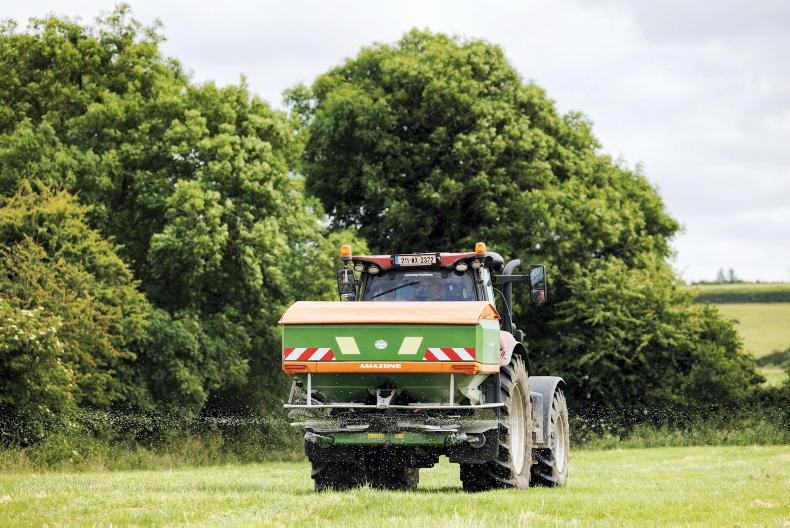

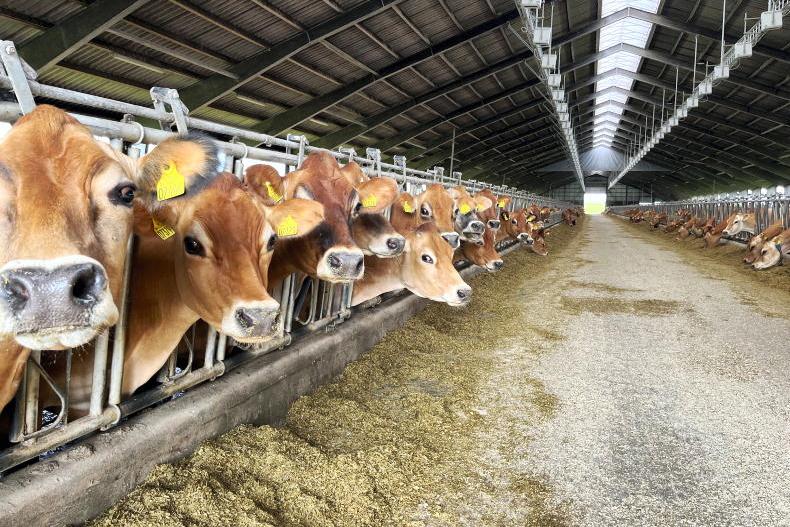
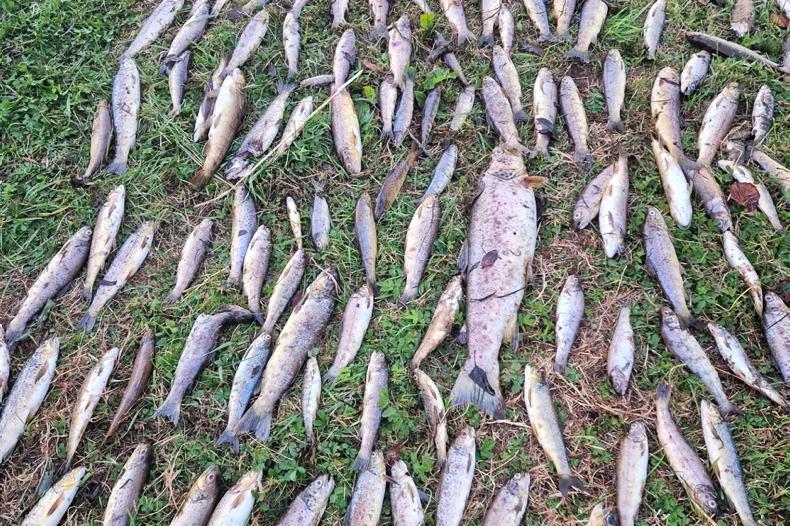
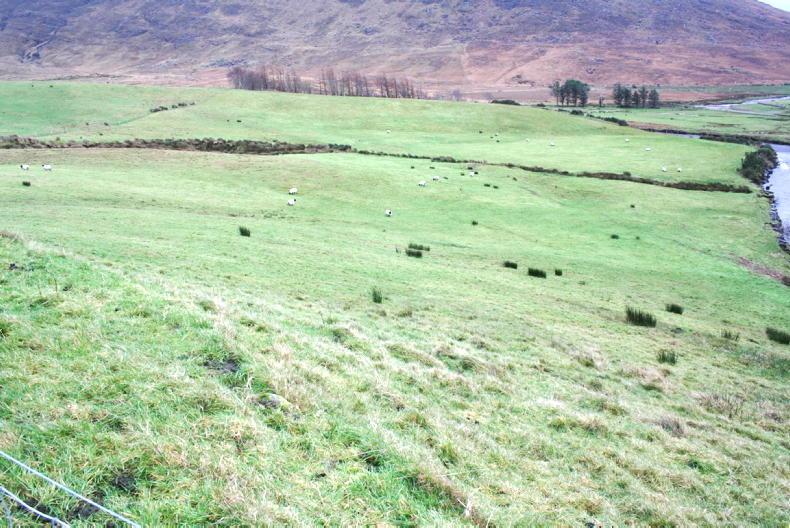
SHARING OPTIONS